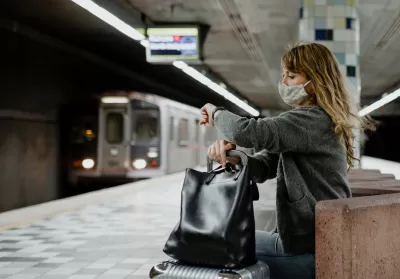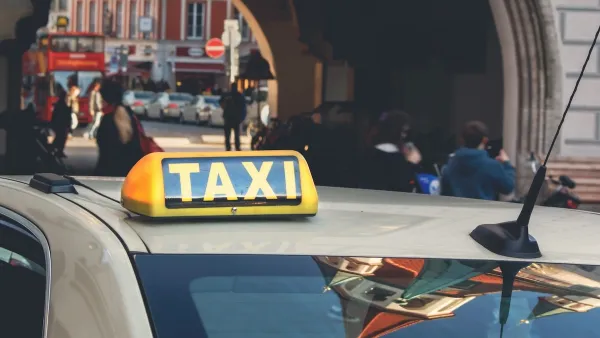Safety and harassment are commonly cited reasons passengers, particularly women and girls, avoid public transit.

“Street harassment is a common phenomenon that many public-transit riders, but especially women and girls, experience on buses and trains, in stations and at bus stops, as they travel between their homes, jobs, schools, events, and recreational activities.” Gabrielle Gurley notes this stark fact at the top of an article in The American Prospect.
In an effort to reduce harassment and make transit safer for women and girls, California legislators passed a law calling for a survey of transit riders’ experiences with harassment, and a second law requiring major transit agencies to collect passenger data on harassment.
In response to user surveys and data about harassment, San Francisco’s BART and Los Angeles Metro launched transit ambassador programs that staff transit stations with unarmed security personnel. “For its part, BART started running shorter trains. Fewer cars with more people on each car helps people feel safer. After this change, the agency has had fewer incidents involving police.”
The agencies are also including zero-tolerance language in their policies and conducting outreach about harassment and available resources, such as emergency call buttons that some passengers are unaware of.
According to the article, “LA Metro saw its highest ridership increases last year after its high-profile moves to offer information services and deploy more security officers, transit ambassadors, crisis intervention specialists, and workers to handle people suffering from drug abuse and homelessness. The agency also made numerous facility safety improvements, adding new lighting, additional call boxes, station music, and modified entrances.”
FULL STORY: California Public-Transit Agencies Confront Rider Harassment

Planetizen Federal Action Tracker
A weekly monitor of how Trump’s orders and actions are impacting planners and planning in America.

Chicago’s Ghost Rails
Just beneath the surface of the modern city lie the remnants of its expansive early 20th-century streetcar system.

San Antonio and Austin are Fusing Into one Massive Megaregion
The region spanning the two central Texas cities is growing fast, posing challenges for local infrastructure and water supplies.

Since Zion's Shuttles Went Electric “The Smog is Gone”
Visitors to Zion National Park can enjoy the canyon via the nation’s first fully electric park shuttle system.

Trump Distributing DOT Safety Funds at 1/10 Rate of Biden
Funds for Safe Streets and other transportation safety and equity programs are being held up by administrative reviews and conflicts with the Trump administration’s priorities.

German Cities Subsidize Taxis for Women Amid Wave of Violence
Free or low-cost taxi rides can help women navigate cities more safely, but critics say the programs don't address the root causes of violence against women.
Urban Design for Planners 1: Software Tools
This six-course series explores essential urban design concepts using open source software and equips planners with the tools they need to participate fully in the urban design process.
Planning for Universal Design
Learn the tools for implementing Universal Design in planning regulations.
planning NEXT
Appalachian Highlands Housing Partners
Mpact (founded as Rail~Volution)
City of Camden Redevelopment Agency
City of Astoria
City of Portland
City of Laramie





























